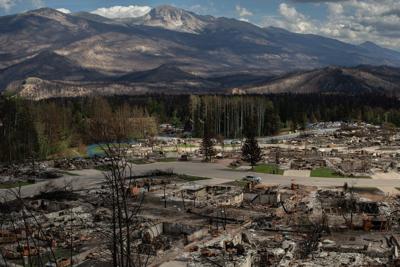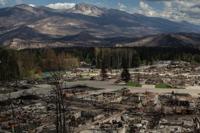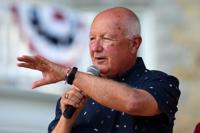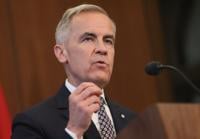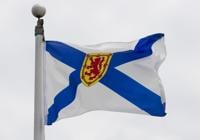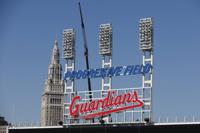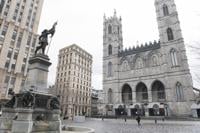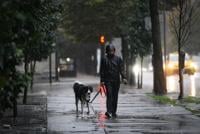Canada's wildfire season has begun earlier than traditionally documented for some provinces, with tens of thousands of residents living in northern parts of the country having to flee raging blazes that have been knocking at many communities' doorsteps. Various social media claims have attributed the cause of the fires to arson and said that climate change is not related to this year's abnormal fire season. This is misleading. While, provinces have found the majority of this season's wildfires have been human caused, there is nothing to indicate they have been purposely set, and wildfire experts say infernos are the result of a combination of factors, including the dry, hot weather spurred by climate change.Â
THE CLAIM
Social media claims found on various platforms – including , and , formerly Twitter – point to data from the Manitoba government that show the majority of the wildfires that have occurred this year in the province have been caused by humans. The posts go on to argue that the media and the are falsely attributing the cause of the blazes to climate change. Â
Some of the also reference a map that appears to show the locations of where wildfires are burning in North America, with a caption that says, "It's safe to say arson season is upon us."
The social media posts have been shared thousands of times at the time of publication.Â
RATING: Misleading
The Manitoba data referred to in some of the posts appears to come from the province's . As of , the province reported that 103 of the 116 wildfires documented were caused by humans.Â
The report does not elaborate on what it means when an investigation determines a blaze was caused by a human, but during a press conference wildfire officials said that classification could mean a variety of things. Among the possible causes of wildfires officials have are machinery and motorized vehicle use, or human error, such as flicking a cigarette or failing to put out a campfire.Â
Human caused does not necessarily mean arson, officials said.Â
"I wouldn't say that people are out deliberately setting fires on a large scale. I think the majority of what we see are fires that start because of carelessness," said Kristin Hayward, assistant deputy minister of the Manitoba Wildfire Service.Â
"It could just be an accidental or an incidental thing to an activity that someone feels is safe at the time."Â
Many of the Manitoba fires remain under investigation, with RCMP saying they've made arrests in three incidents this wildfire season for arson – one of which created a wildfire that spread more than 80 hectares.Â
Police say the person charged in that case had started a controlled burn that quickly got out of control.Â
Another suspect was charged after his controlled burn resulted in damage to a residence and the burning of a shed, but was contained before it could cause further damage.Â
Three female youths were arrested after starting a grass fire, which led to the damage of several fences and approached several homes before being extinguished.Â
Police say they are also investigating an incident where officers found a spray can that was converted into a homemade fire bomb and was thrown into the woods, which started a wildfire that was eventually extinguished. There have been no arrests in this case.Â
Conservation officers in the province have also issued 74 charges and 28 warnings since May 1 relating to wildfires. These could be offences relating to entering an area that have been closed without a proper permit, starting a fire on any land when weather conditions are conducive to fires burning out-of-control or burning without a permit.Â
Elsewhere in the Prairies, a woman and a man were in two separate incidents, one of which prompted thousands of people to flee the northern Saskatchewan town of La Ronge.Â
Alberta RCMP told °µÍø½ûÇø they are not aware of any arson charges relating to wildfires, but did note one person was arrested for allegedly tampering with sprinkler systems in an evacuation area. Three individuals were also and will have to pay a fine after setting off fireworks during a fire ban.Â
These arrests count for a small portion of the wildfires that are suspected to have been caused by humans.Â
"Arson is extremely rare. It is an accident … it is very rare to say this was done on purpose," said , executive director of the Institute for Catastrophic Loss Reduction at Western University in London, Ont.
Kovacs said it is not uncommon for a large number of wildfires to be caused by humans. Â
"Historically, roughly half of the fires that start in Canada are human caused and roughly half the fires in Canada are started by lightning and other natural causes. That's true year after year, decade after decade."
Spring fires are generally human caused and summer fires are more often started by natural occurrences like lightning when those events are more likely to happen, wildfire experts say.Â
CLIMATE CHANGE
Wildfire and climate change experts say there is no one reason why wildfires occur because they are responsive to multiple different elements.Â
"It's never going to be one single thing that we can attribute to a fire. It's very possible that multiple factors are contributing to the severe wildfire situation, including climate change," said , an assistant professor and member of the Centre for Wildfire Coexistence at the University of British Columbia.Â
When thinking of what drives fire behaviour, Baron says three different elements contribute to it: the fuels that are present, the fire weather that the fire burns under and the topography.Â
Fuel is considered anything in a forest or a natural system that can burn, including trees, grass, sticks, pine cones, needles that have fallen or shrubs.Â
Climate change has led to areas, like in parts of Northern Canada, experiencing hot and dry conditions earlier than expected, Baron said.Â
This leads to these areas being prime locations for wildfires to spread.Â
The majority of the fires in Manitoba are happening as you go into the boreal shield zone.Â
"Those forests are adapted to burn infrequently because it's rarely hot and dry enough at the time of year when they're primed to burn. Boreal forests are most flammable in the spring, but rarely do you get the weather conditions that are conducive to large fires," Baron said.Â
The reason they are more flammable in the spring, Baron said, is because the broadleaf deciduous trees haven't put their leaves on and there is less moisture content in the needles of the conifers.Â
In the summertime, deciduous branches aren't as easy to burn when they have their leaves because they hold more moisture.Â
In the past, boreal forests would have burned every couple hundred years when an anomalous climate event happened but those events are happening more increasingly, Baron said.Â
"Not only are we seeing these hot and dry conditions, these droughts occur more frequently, but when they do occur, they're more severe than they used to be."
She added that as wildfires continue in different forest types across Canada, this leads to the creation of more fuel, which can contribute to later blazes.Â
Ultimately, Baron said as long as people live in the natural environment, human caused fires will remain, but they can be limited.Â
"It's our responsibility to mitigate those impacts, but I don't think it's possible that we can completely eliminate human ignitions," she said.
"But we can certainly eliminate the irresponsible ones that are avoidable."
SOURCES
Social media claims posted to June 2, 2025 (, ), June 3, 2025 (), and on X (), () and ()
Fire situation report. Manitoba government . June 3, 2025 ()
Fire situation report. Manitoba government . June 9, 2025 ()
Wildfire update - June 9, 2025. Manitoba government, via . June 9, 2025 (, )
BC Wildfire Service . May 7, 2025 ()
Aaron Sousa. Saskatchewan lays charges in wildfires while 1,000 more flee in Manitoba. CityNews Toronto . June 6, 2025 ()
3 charged in northern Alberta for setting off fireworks during fire ban. CBC News Edmonton . June 9, 2025 ()
, executive director of the Institute for Catastrophic Loss Reduction at Western University. Interviewed June 10, 2025 ()
, assistant professor and member of Centre for Wildfire Coexistence at the University of British Columbia. Interviewed June 10, 2025 ()
ABOUT CANADIAN PRESS FACT CHECKS
You can find out more about °µÍø½ûÇø here and about Canadian Press Fact Checks here. To reach our fact-checking team with any tips, corrections or comments, please email us at cpfactcheck@thecanadianpress.com.

